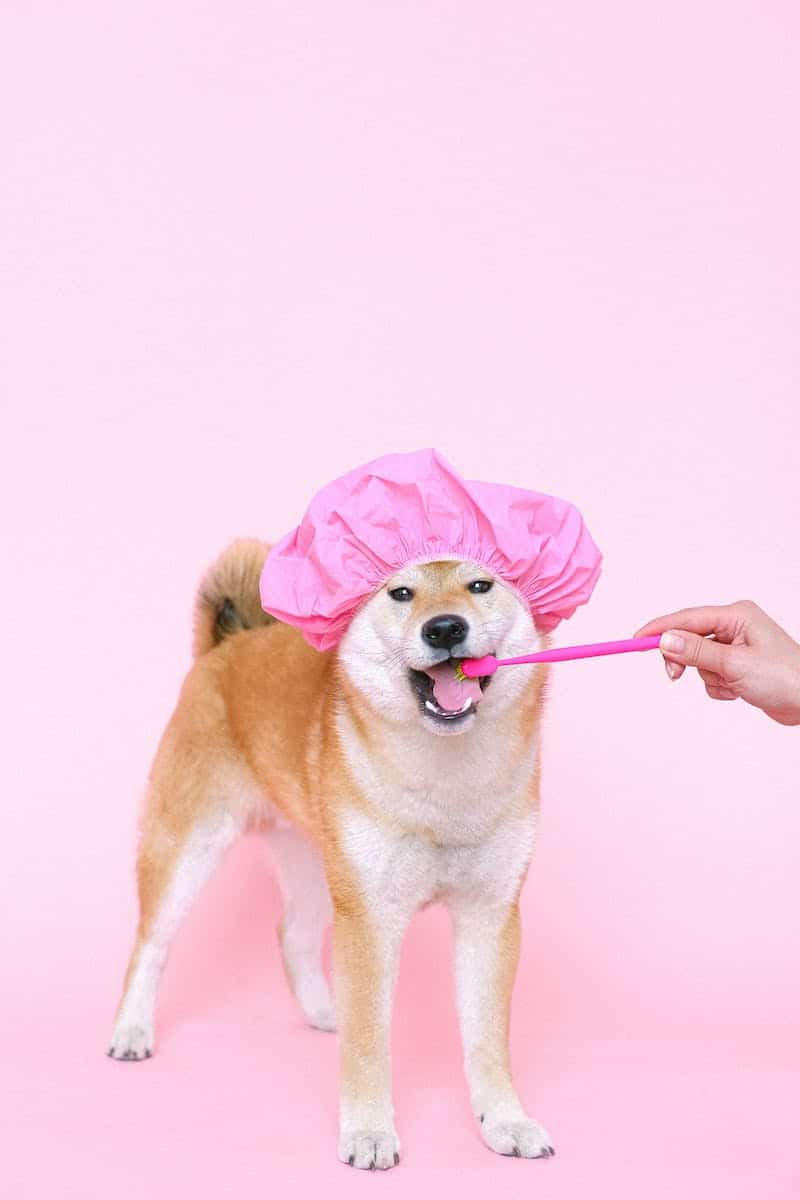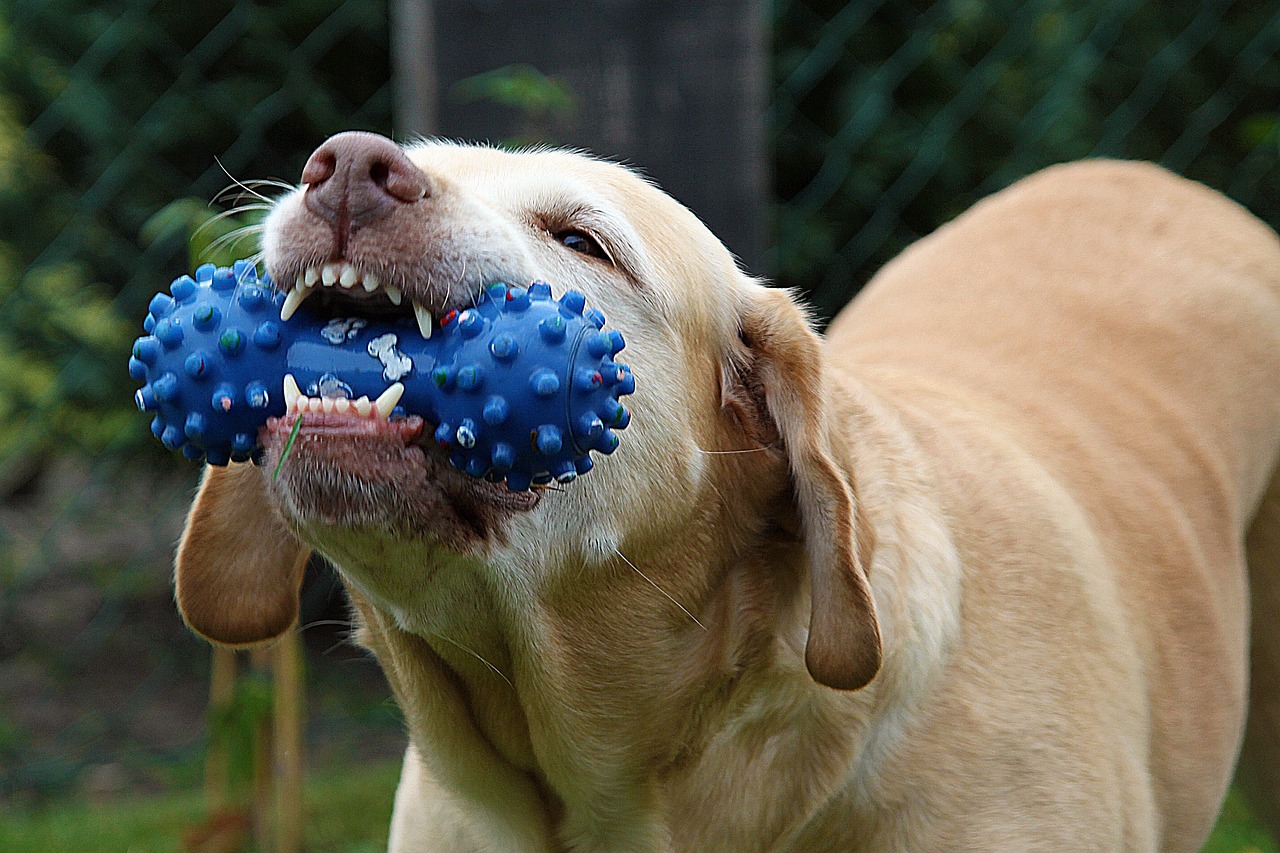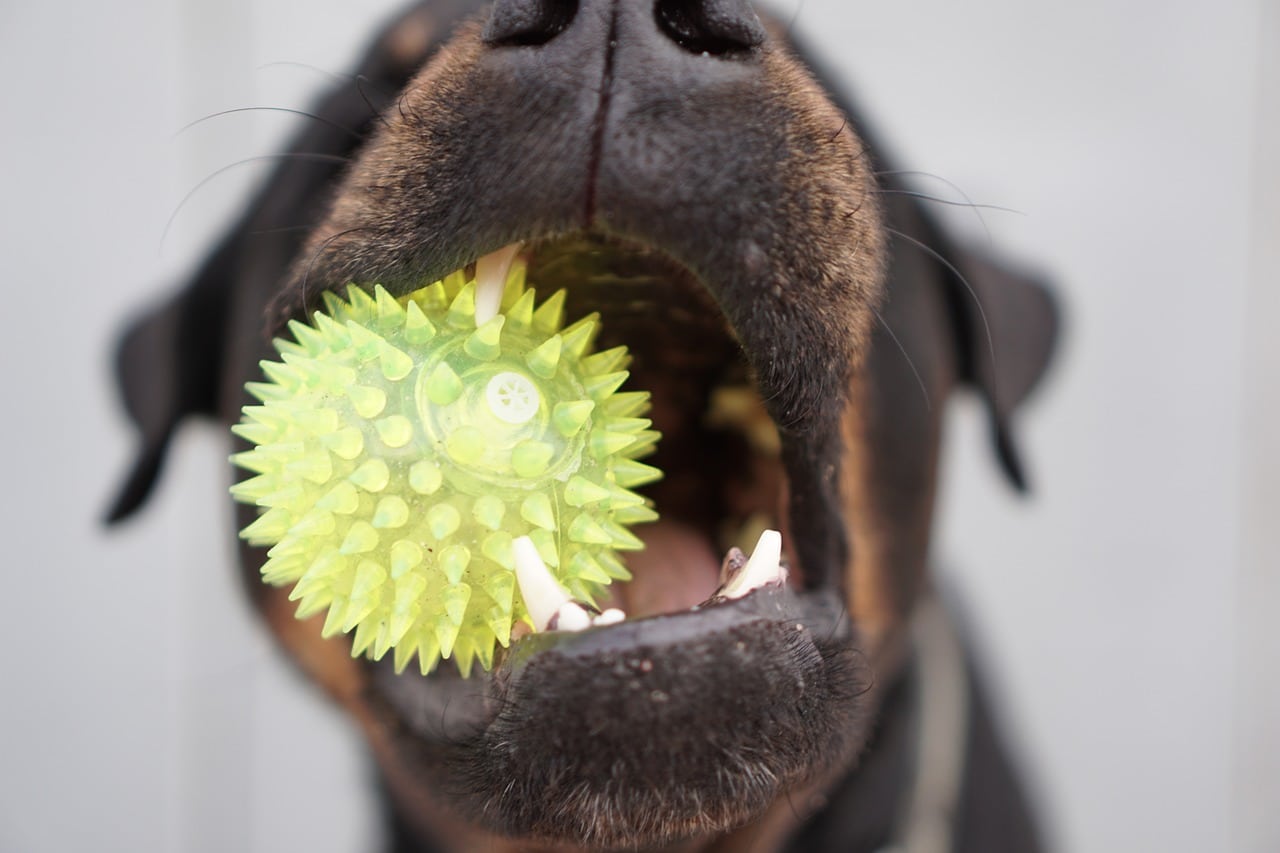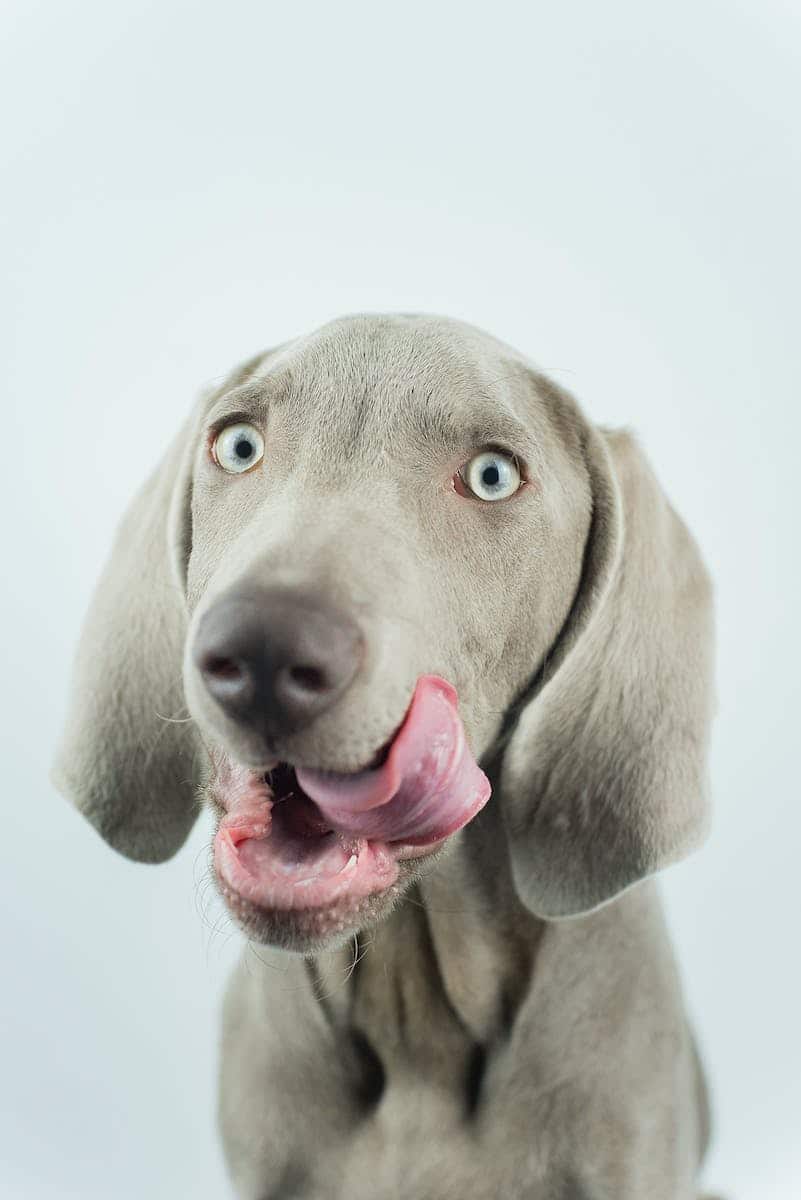Keeping your furry friend's teeth healthy and clean is essential for their overall well-being. In this guide to dental care for dogs, you will discover the best practices and prevention methods to ensure your canine companion maintains a sparkling smile and avoids any dental issues. From brushing techniques to oral hygiene products, this article will provide you with valuable insights on how to take care of your dog's dental health, promoting not only fresh breath but also preventing more serious health complications. So, let's dive into the world of canine dental care and give your beloved pet the best care they deserve.
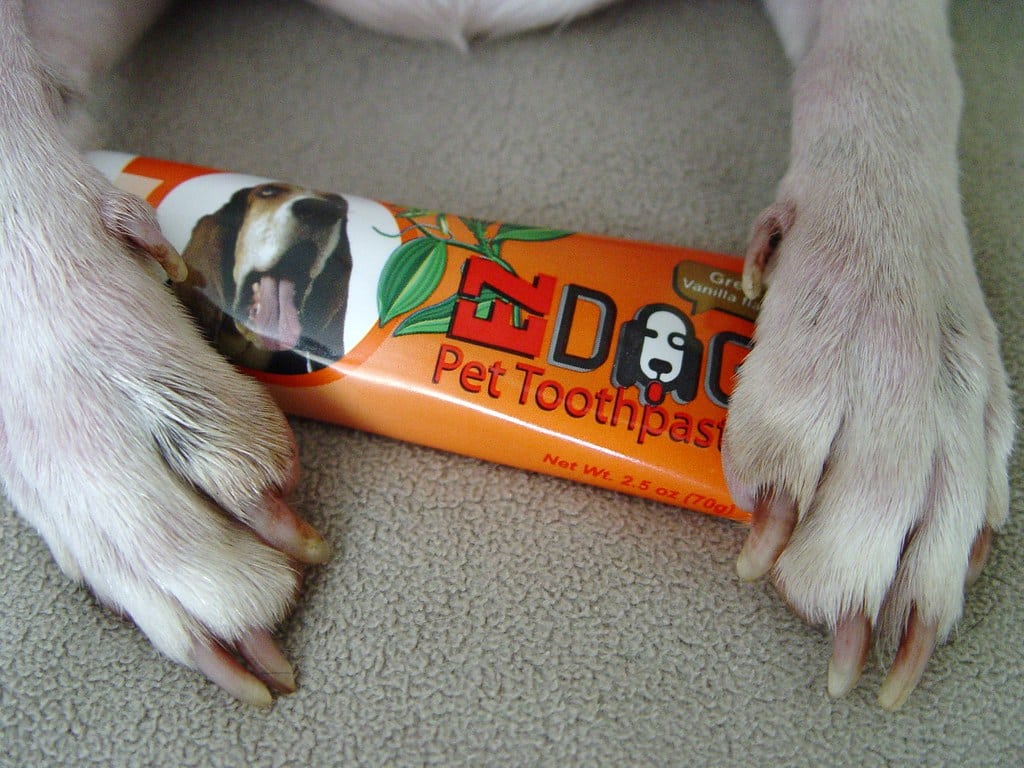
The Importance of Dental Care for Dogs
Understanding the impact of dental health on overall well-being
As a dog owner, you care deeply about your furry friend's well-being. However, many pet owners overlook the importance of dental care for dogs. Just like in humans, maintaining good dental hygiene is crucial for dogs' overall health. Poor oral health can lead to various dental problems, which can, in turn, have a significant impact on their overall well-being.
Common dental problems in dogs
Dogs can suffer from various dental issues, and it is essential to be aware of these common problems. One of the most prevalent dental issues in dogs is periodontal disease, which affects the gums and the supporting structures of the teeth. Without proper care, this condition can lead to tooth loss, pain, and infection. Other common dental problems include tooth decay, oral tumors, and gingivitis.
Best Practices for Dental Care
Regular brushing
Just like humans, dogs need their teeth brushed regularly to maintain good oral hygiene. Establishing a routine of brushing your dog's teeth can go a long way in preventing dental problems. It is recommended to brush your dog's teeth at least two to three times a week, if not daily. Regular brushing helps remove plaque and prevents the buildup of tartar.
Choosing the right toothbrush and toothpaste
When it comes to brushing your dog's teeth, it is important to select the right toothbrush and toothpaste. Use a toothbrush specifically designed for dogs, as their bristles are softer and gentler on their gums. As for toothpaste, never use human toothpaste as it can be toxic to dogs. Instead, choose a dog-friendly toothpaste with flavors they enjoy, such as poultry or peanut butter.
Establishing a dental care routine
To ensure your dog's dental health, it is essential to establish a dental care routine. Start by gradually introducing your dog to teeth brushing, making it a positive experience for them. Set aside a specific time each day or week for dental care, and stick to this routine. Consistency is key when it comes to maintaining good oral hygiene for your furry friend.
Professional dental cleanings
While regular brushing at home is crucial, professional dental cleanings are also necessary to ensure thorough oral care for your dog. Veterinarians can perform professional cleanings, which involve a comprehensive examination, scaling to remove tartar, and polishing the teeth. Depending on your dog's specific needs and dental health, your veterinarian will recommend the appropriate frequency of professional cleanings.
Prevention of Dental Problems
Proper diet and nutrition
A balanced diet plays a significant role in maintaining good dental health for dogs. Providing your dog with high-quality dog food that promotes dental health can prevent certain dental problems. Look for dog food that is specifically formulated to promote dental hygiene, as they often contain ingredients that help control tartar and plaque buildup.
Chew toys and dental treats
Chew toys and dental treats can also contribute to maintaining good oral health for your furry friend. Chewing helps stimulate the production of saliva, which can naturally clean their teeth. Select chew toys that are safe for dogs and designed to promote dental health. Additionally, dental treats can help reduce plaque and tartar buildup while providing a tasty reward for your dog.
Avoiding human food
It's essential to refrain from feeding your dog human food, especially foods that can be harmful to their dental health. Human foods, such as sugary snacks, can contribute to the development of dental problems in dogs. Stick to a healthy and balanced diet specifically formulated for dogs, and avoid giving them table scraps or foods that can damage their teeth.
Monitoring dental changes
Regularly monitoring your dog's dental health is crucial in detecting and addressing any issues promptly. Keep an eye out for signs of dental problems such as bad breath, excessive drooling, difficulty chewing, yellow or brown tartar buildup, red or inflamed gums, and loose or missing teeth. If you notice any of these signs, it's important to consult with your veterinarian for a proper diagnosis and treatment plan.
Indicators of Dental Issues
Bad breath (halitosis)
Bad breath, often referred to as halitosis, is a common sign of dental problems in dogs. While dog breath isn't typically pleasant, a foul odor that persists even after regular brushing could indicate an underlying dental issue. The presence of bacteria and plaque in the mouth can cause bad breath, and addressing the root cause is essential to maintaining your dog's oral health.
Excessive drooling
While some drooling is normal for dogs, excessive drooling can be a sign of dental problems. If you notice a sudden increase in drooling or your dog's drooling seems abnormal, it's worth investigating further. Dental issues such as tooth decay or gum disease can cause discomfort, leading to excessive drooling in dogs.
Difficulty chewing or loss of appetite
If your dog is experiencing difficulty chewing their food or shows a loss of appetite, it could be due to dental problems. Pain from inflamed gums or dental decay can make eating uncomfortable for dogs. Changes in their eating habits should prompt a closer look at their dental health to ensure they can eat comfortably and maintain proper nutrition.
Yellow or brown tartar buildup
The buildup of yellow or brown tartar on your dog's teeth is a sign of poor dental health. Tartar is a hardened form of plaque that accumulates over time if not properly removed. Regular brushing and professional cleanings can help prevent tartar buildup, but if you notice significant discoloration on your dog's teeth, it's important to address it promptly to prevent further dental issues.
Red or inflamed gums
Healthy gums should be pink and firm. If you notice that your dog's gums are red, swollen, or inflamed, it could indicate gum disease or other dental problems. Take a closer look and consult with your veterinarian to determine the best course of action to address the underlying issue and prevent further complications.
Loose or missing teeth
The presence of loose or missing teeth in dogs is cause for concern and often indicates underlying dental problems. Tooth loss can result from advanced periodontal disease, trauma, or other dental issues. It is important to have your dog examined by a veterinarian to determine the cause of tooth loss and develop an appropriate treatment plan.
Brushing Your Dog’s Teeth
Gradual introduction to teeth brushing
Not all dogs are accustomed to having their teeth brushed, and it may take some time to get them comfortable with the process. Start by gradually introducing your dog to the idea of teeth brushing. Begin by simply touching your dog's muzzle and gradually work your way up to introducing a toothbrush and toothpaste.
Choosing the right toothbrush and toothpaste
Selecting the appropriate toothbrush and toothpaste for your furry friend is crucial for effective teeth brushing. Opt for a toothbrush specifically designed for dogs, as their bristles are softer and gentler on their gums. As for toothpaste, never use human toothpaste as it may contain ingredients that can be harmful to dogs. Instead, choose a dog-friendly toothpaste with flavors they enjoy.
Step-by-step tooth brushing technique
To effectively brush your dog's teeth, follow a step-by-step technique. Start by lifting your dog's lips gently to expose their teeth. Use gentle, circular motions to brush the teeth and gums, paying special attention to the back molars where plaque and tartar tend to accumulate. Take your time and ensure you reach all areas of your dog's mouth.
Tips for making teeth brushing a positive experience
To make teeth brushing a positive experience for your dog, it's important to create a calm and comfortable environment. Use positive reinforcement by rewarding your dog with praise or a small treat after each successful teeth brushing session. Gradually increase the duration of brushing over time, making it a routine part of their day.
Professional Dental Cleanings for Dogs
Understanding the importance of professional cleanings
While regular at-home dental care is essential, professional dental cleanings are also crucial for your dog's oral health. Professional cleanings performed by a veterinarian involve a thorough examination, scaling to remove tartar, and polishing of the teeth. This process ensures a deeper level of cleaning that may not be achieved through regular brushing alone.
Frequency of professional dental cleanings
The frequency of professional dental cleanings may vary depending on your dog's individual needs and dental health. It is generally recommended to have a professional cleaning performed at least once a year. However, some dogs with a higher risk of dental problems may require more frequent cleanings. Consult with your veterinarian to determine the appropriate frequency for your furry friend.
Preparation for a dental cleaning
Before your dog's dental cleaning, it is important to ensure they are prepared for the procedure. This may involve fasting for a certain period before the cleaning to prevent vomiting or aspiration during anesthesia. Your veterinarian will provide you with specific instructions on how to prepare your dog for their dental cleaning, including any necessary pre-operative medications.
What to expect during a dental cleaning
During a dental cleaning, your dog will be put under general anesthesia to ensure their safety and comfort throughout the procedure. Your veterinarian will carefully examine their teeth and gums, remove any plaque or tartar buildup, and perform any necessary extractions if teeth are severely damaged or infected. Once the cleaning is complete, your dog will be monitored as they recover from anesthesia.
Dental Care for Different Dog Breeds
Unique dental care needs based on breed
Different dog breeds may have unique dental care needs based on the characteristics of their teeth and jaws. For example, small breed dogs, such as Chihuahuas or Yorkies, may be more prone to dental issues due to overcrowding of teeth in their small mouths. On the other hand, large breed dogs may be at higher risk of developing periodontal disease due to the size and shape of their teeth. Understanding your dog's breed-specific dental care needs can help you provide the best care possible.
Breeds prone to dental problems
Some dog breeds are more prone to dental problems than others. Breeds with shorter snouts, such as Pugs or Bulldogs, generally have dental issues due to the overcrowding of teeth. Toy breeds, such as Maltese or Yorkshire Terriers, are prone to dental problems due to their small mouths and teeth. It is essential for owners of these breeds to pay extra attention to their dental health and provide appropriate dental care.
Adapting dental care for small and large breeds
When it comes to dental care, both small and large breed dogs require attention and adaptation. Small breeds may benefit from smaller toothbrushes or finger brushes that can easily fit into their mouths. Large breed dogs may require more frequent dental check-ups and cleanings due to their increased risk of periodontal disease. Consulting with your veterinarian can help determine the best dental care practices for your dog, regardless of their size.
Proper Diet and Nutrition for Dental Health
Choosing the right dog food for dental health
Proper diet and nutrition play a vital role in maintaining good dental health for dogs. Choosing the right dog food can make a significant difference in preventing dental problems. Look for dog food that is specifically formulated to promote dental hygiene, as they often contain ingredients that help control tartar and plaque buildup. Additionally, dry kibble can help mechanically clean their teeth as they chew.
Raw food diet and dental benefits
Some dog owners opt for a raw food diet for their furry friends, and when done properly, it can provide dental benefits. Raw food diets often include meat, bones, and other natural ingredients that help scrape plaque and tartar off teeth. However, it is important to consult with a veterinarian or veterinary nutritionist before transitioning your dog to a raw food diet, as it may not be suitable for all dogs.
Supplements for dental health
In addition to a balanced diet, certain supplements can support your dog's dental health. Dental supplements often contain ingredients like probiotics, enzymes, or antioxidants that promote oral health. These supplements can help maintain healthy gums and reduce plaque and tartar formation. However, it's important to consult with your veterinarian before introducing any supplements to your dog's diet.
Chew Toys and Dental Treats for Dogs
Benefits of chew toys for dental health
Chew toys can provide several benefits for dogs' dental health. Chewing helps stimulate the production of saliva, which naturally cleans their teeth and reduces the risk of plaque and tartar buildup. Additionally, chewing on appropriate toys can help alleviate boredom and stress, promoting overall mental well-being for your furry friend.
Choosing appropriate chew toys
Not all chew toys are created equal, and it's important to choose appropriate ones for your dog's dental health. Look for toys that are specifically designed to promote dental hygiene, such as those with textured surfaces or ridges that help scrape away plaque. Avoid toys that are too hard or those that can easily be swallowed or become a choking hazard.
Types of dental treats and their effectiveness
Dental treats are a popular choice for promoting oral health in dogs. These treats are often designed to be chewy or crunchy, which helps reduce plaque and tartar buildup as dogs chew on them. Some dental treats may also contain ingredients like enzymes or additives that further promote dental health. Look for reputable brands and consult with your veterinarian to determine the most effective dental treats for your dog.
DIY dental treats
If you enjoy making treats for your furry friend, there are also DIY dental treats you can try. Some homemade treats, such as frozen carrot sticks or certain fruits and vegetables, can serve as natural teeth cleaners. However, it's important to research which foods are safe for dogs and consult with your veterinarian before introducing any homemade treats into your dog's diet.
Monitoring and Maintaining Dental Health
Regular oral examinations
Regular oral examinations by a veterinarian are essential for monitoring and maintaining your dog's dental health. Your vet can detect any early signs of dental issues and provide timely treatment. During these examinations, your vet will examine your dog's teeth, gums, and mouth, and recommend any necessary follow-up care.
Home dental health checks
In addition to professional oral examinations, conducting regular home dental health checks can help you stay vigilant about your dog's oral hygiene. Take the time to inspect your dog's teeth and gums for any signs of redness, inflammation, or abnormalities. This regular monitoring can help you detect any changes or issues early and seek appropriate veterinary care.
Addressing dental issues promptly
If you notice any signs of dental issues or changes in your dog's oral health, it's important to address them promptly. Ignoring dental problems can lead to complications and further discomfort for your furry friend. Contact your veterinarian and schedule an appointment for a proper diagnosis and treatment plan to ensure your dog receives the necessary care.
Maintaining a good dental care routine
Consistency is key when it comes to dental care for dogs. Maintaining a good dental care routine, including regular brushing, providing appropriate chew toys and treats, and scheduling professional cleanings when necessary, is essential for your dog's oral health. By making dental care a part of your dog's overall wellness routine, you can help ensure they have a healthy smile and a happy life.

